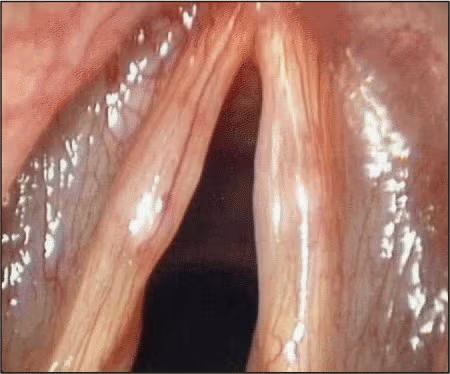
Explore This Issue
October 2009Dr. Ossoff opined that waiting and evaluating is the best course. The best thing you can do is buy some time and not make a decision the first time that patient comes into the office, he said. You want to clean up the larynx, and that gives you some time.
He said he would put the patient on two weeks of voice rest with a tapering dose of steroids. That would eliminate some of the edema and give him a better view of the problem. These are tough cases, and you want to study them over time and see what happens, Dr. Ossoff said.
C. Blake Simpson, MD, Director of the University of Texas Voice Center in San Antonio, said he would prefer injecting steroids. I’ve had people who have cysts or ruptured cysts where I’ve tried injecting steroids into the vocal fold, he said. In particular, I’m thinking of a teacher. We got her through the semester doing that and actually never ended up taking off the lesion. So I think that’s worked fine. You’re not going to lose anything.
Dr. Koufman asked whether anyone had used a laser, but no one said they had. Dr. Koufman said that surprised her. It seems to help on some of these bad ones, she said. I would only try it in a case like this, where the patient has not a lot to gain from having a resection where you’re taking out most of what would otherwise have been vocal fold.
In this case, she said, she did remove the cyst and the scarring on both sides. Then she used lipoinjection to bulk up the vocal folds, and the patient ended up doing pretty well.
©2009 The Triological Society
Leave a Reply